
Some aliens can't take the heat
Only a few years after Godzilla stomped through Tokyo and Rodan stirred up trouble, Japan had to deal with aliens. The Mysterians wanted to set up housekeeping on the island and to mate with Earth women. They had a giant robot and destructive ray while the humans had two plucky scientists.Shiraishi Ryoichi is convinced that aliens are lurking in the area around Mt. Fuji. Most of his colleagues think he needs a vacation, until strange events begin to take place in his village. When an underground alien fortress rises up for all to see scientists Adachi Tanjiro and Atsumi Joji realize Ryoichi had been right all along. The Mysterians blew up their own planet during a terrible war and are looking for a new place to hang out. They also need to breed with Earth women because they have been unable to reproduce healthy children on their own since their war. Needless to say, the Earthlings aren’t ready to acquiesce to the Mysterians’ demands and start to work on building a weapon to counter the deadly ray gun the aliens use.
This was another Toho film directed by Honda Ishiro with music by Ifukube Akira. The miniatures and overlays were all well done. This was before many of the miniature towns started looking like cardboard boxes as they stretched the Godzilla franchise out on smaller and smaller budgets. There were also some real-world military weapons and planes interspersed throughout the film. The Mysterians had one of the first big screen TVs, 10 years before Capt. Kirk on the starship Enterprise. Shimura Takashi, famous for his work in Kurosawa Akira films, played in several of these Honda films, this time as the lead scientist. Hirata Akihiko, the hero of the original Godzilla, played a more morally complex character in this film. As with other films in the early years of the Toho monster flicks, there was a moral lesson to be learned. An all out nuclear war would all but ensure humankind's destruction so another way of combating the Mysterians had to be found.
The Mysterians had its moments. I mean, who wouldn’t want to see a giant laser fight in front of Mt. Fuji? Where the film lacked for me were the Mysterians. They were a little too mysterious in their colorful Power Rangers costumes. We never see their faces or hear their diabolical plan for world domination. Most of the film was from the scientists’ point of view and their assumptions that the aliens were up to now good. The film could have also used more of Moguera, the giant robot. For a 1957 sci-fi film, the special effects were sufficient as was the acting, surprisingly. I just needed a little more menace from the creatures who arrived from their blown-up planet via Mars, via the moon.
3 October 2024
Esta resenha foi útil para você?

What does it mean to be a mother?
No Blood Relation was the second oldest surviving film from director Naruse Mikio. Like Ozu Yasujiro, many of his early films have been lost to the ravages of time. Based on a novel by Yanagawa Shunyo, Naruse asked the question, “What makes a mother?” Is it biology or nurture? A little girl would be torn between the only mother she’d ever known and the mother who came to town to claim her.Famous actress Tamae Kiyooka returns home to Japan after making her fortune in the United States. First on her list of things to do is to regain custody of the daughter she abandoned as a newborn when she ran off with her lover to pursue her career in Hollywood. Coincidentally, her ex-husband is filing for bankruptcy and being hauled off to jail for reasons related to the downfall of his company. Kiyooka is unaware of how deeply Shegiko and her stepmother love each other. Masako has raised Shegiko as her own with Shegiko never knowing she’s not her biological mother. Kiyooka uses Atsumi’s mother who is disgruntled by their backward step in fortunes to kidnap Shegiko. Neither the little girl nor her stepmother are willing to be separated, but Kiyooka believes she has the moral high ground with the blood relation and is wiling to be patient.
Okada Yoshiko had the difficult job of making Tamae Kiyooka sympathetic. The script didn’t help much but her ability to convey Kiyooka’s sorrow and frustration over her daughter not only not recognizing her, but hating her as well came across wonderfully nuanced. Because Kiyooka remembered her child it never occurred to her that Shigeko would feel no connection to her. The consequences of her choices tumbled on her like a falling spotlight. “Is the bond between mother and child so fragile?” When you’ve put no effort into it for 7 years, yeah, it’s pretty fragile. I found Okada to be a fascinating person. The actress led a complicated life with various lovers culminating with a move to the USSR in 1938. Instead of a happy ending they were jailed and tortured as spies. She was incarcerated for 10 years and her lover died before she ever saw him again. Okada went back to Japan to make a few films in the 1970’s but returned to the Soviet Union not long afterward. Her story would make an intriguing film.
Tsukuba Yukiko as Atsumi Masako gave her character heart and a gentle fierceness as she fought for the daughter she loved. Traditional Masako was shown in contrast to Kiyooka’s modern and Westernized woman. Kiyooka deserted her daughter for a career while Masako began a job to keep her daughter. Oka Joji played the Atsumi’s friend, Kusakabe Masaya. This was a distracting casting choice for me. Nara Shinyo as Atsumi was homely and petite. I couldn’t help shipping handsome and imposing Kusakabe with Masako. Kojima Toshiko was charming as Shegiko, the precious child two mothers fought over. Katsuragi Fumiko played Atsumi’s greedy mother who proved that gold is thicker than blood.
I watched this silent film on the Criterion Channel where the film had an unobtrusive piano accompaniment added. There was significant salt and pepper pocking as well as white lines on some frames. The intertitles were used efficaciously and provided the necessary information needed with one exception. I wasn’t sure why Atsumi was sent to prison. Naruse made several awkward choices with the use of speedy extreme closeups interspersed with choppy shots of people and exteriors. His later work would flow much better. The bumbling brothers felt like they were part of different movie when they were clowning around all while two women fought a devastating battle for the affections and custody of a child.
With no spoken word, compelling performances were a must for silent films. No Blood Relation was fortunate to have quality actors conveying the film’s message. “It’s raising a child, not giving birth to one that makes a woman a mother.” Kiyooka had to learn the difference between love and possession while Masako had to dig deep to fight for the daughter she loved. If you enjoy Naruse’s films this poignant story about maternal love and what constitutes a family is one to try.
23 September 2024
Esta resenha foi útil para você?
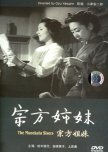
"Being new is all about not getting old"
The Munekata Sisters is an Ozu Yasujiro film based on a novel serialized in a newspaper which gave it a slightly different flavor than the typical Ozu film. There was still his usual battle between a traditional lifestyle and the encroaching modernized world. This time the conflict between old and new took place between two sisters.Energetic Mariko lives with her older sister Setsuko and drunken, sullen, unemployed brother-in-law Mimura. After reading Setsuko’s diary she realizes that her sis is not only in a loveless marriage but lost out on her true love 15 years ago. True love Hiroshi is back in town and Mariko begins spending time with him. While Mariko wants Hiroshi and Setsuko to reunite, her very traditional sister would never consider such a thing.
Tanaka Kinuyo played the mature, well-spoken, dutiful wife in a kimono. Despite the fact that her husband barely gave her the respect the lowliest servant would receive she kept her cool and served him politely. Takamine Hideko turned on her 100-watt smile and injected Mariko with boundless effervescence. Mariko wore high heels, nail polish, and western style clothing and hated old-fashioned things while Setsuko loved visiting gardens and temples. Uehara Ken’s Hiroshi was harder to pin down. He was amiable but not terribly decisive and tended to go with the flow. Dependable Ozu regular, Ryu Chishu played the father but was only in a couple of scenes. The father’s most important advice was for his daughters to be true to themselves whatever that might be. Ozu never was concerned with actor’s ages, Ryu was only 5 years older than his “daughter”, Tanaka. With 15 years between them Tanaka’s relationship with Takamine felt more motherly than sisterly. I kept hoping one of Ozu’s trains would run over Yamamura So’s Mimura. “A wife’s the epitome of stupidity…just a convenient tool. Like a doorbell...The problem is drinking and doing nothing is hard to give up.” I cheered when fearless Mariko stood up for her long-suffering sister. The old ways were simply too deeply ingrained in Setsuko which could be incredibly frustrating for a modern viewer.
The Munekata Sisters stretched Ozu a little out of his comfort zone with more overtly emotional scenes. The comedy worked for the most part with the exception of Mariko’s overused kodan style of storytelling. Still in play were Ozu’s meditative scenes of architecture and a father quietly appreciating a nightingale’s song. Ozu tried to show that both the old and new had value and that fads that changed within a short time were not as important. As Mariko said about she and her sister, “We grew up in two different worlds.” With the ending Ozu provided I’m not sure he made the case for outdated things still being relevant, though the impacted character was true to herself.
9 September 2024
Esta resenha foi útil para você?

"Devotion to art is like a religious belief"
Hu Mei’s passion project about the nascent Beijing Opera took six years to come to fruition. Not even the studio burning down could thwart her. Enter the Forbidden City was a beautifully shot film that took time to find its footing but once the two singers began to share the spotlight, the “fascination” began.Singer Yue Jiu is betrayed by jealous rivals and banned from the capital for life. In the same city where he is in exile, Run Sheng is facing discrimination because he is an entertainer. Back in the capital, the emperor wants to invite 100 theatrical troupes to The Forbidden City for his 80th birthday but the cost is too prohibitive (17,800 taels of silver per troupe!). If they can pay their own way, the entertainers are welcome to come. Princess Feng attends Run Sheng’s shows and has taken an interest in him as a patron and as a woman. The troupe’s travel plans run into a financial snag until they are offered what they need to appear before the emperor, but for a dangerous tradeoff.
Hu Mei’s movie was lush and color saturated. The costumes were elegant and she often filmed on location which added a realism to the setting. Emotional music swelled in the background, a nice break from the actors’ singing performances. All of these things contributed to a well-made film which was pleasing to soak in. Where the film lapsed for me was the first third of the film. Jiu was the initial character shown so he imprinted on me. After he was quickly kicked out of the capital, the film focused on Run Sheng and the abuse the troupe members took from the locals. This left me wondering what happened to Jiu and where the film was going. Run Sheng’s elopement gobbled up much of the running time and had very little to do with the overall story development except to give him more depth and appear unstable. I also have a complaint that was completely out of Hu Mei’s hands---the official subtitles were white and miniscule. They were difficult, sometimes impossible, to read and a real eyestrain.
The strength of this film lay in showing how the actors worked and practiced. Ma Yi Li as Princess Feng added a feminine element even when she was dressed as a man. She wasn’t strictly fangirling, she had precious tips for the overconfident Run Sheng. Jiu’s complete commitment to his craft bordered on obsession and inspired Run Sheng. Fu Da Long was exceptional as Yue Jiu, whose every movement was graceful and specifically designed. Ma Yi Li is fast becoming a favorite with her striking screen presence, she balanced the princess’ strength and vulnerability with ease.
Enter the Forbidden City was inspired by real stories and events and a treat for the eyes. Though not my culture or history, I enjoyed learning about some of the history of early Beijing Opera. It was also one of the rare times an emperor wasn’t portrayed as a monster or a complete idiot which was refreshing. Please don’t tell me if he was a monster and/or idiot in real life. ^^
27 August 2024
7.25
Esta resenha foi útil para você?

"Do you have a warranty?"
If you are in the mood for something super quirky that looks like it was made on a shoestring budget, search no further, Haruko’s Paranormal Laboratory is here to serve your quirky needs. It felt like writer/director Lisa Takeba brainstormed as many strange things as she could and then strung them all together in a surreal story.Haruko is an odd little duck who has always desperately wanted to have a paranormal adventure. She’s been begging for a UFO to visit her for years especially after her brother was taken up in one. She complains about every show on her 1953 television set. Unseen to her a counter flips over a number for every complaint and curse word she utters. When it hits 10,000 her television turns into a man with a tv on his head and a super dong for other activities. They quickly become sex buddies. After a while he tires of being a house boyfriend doing all the domestic activities and goes out to find a job. Fortunately for him, he speaks 12 languages and lands a couple of teaching jobs on TV and the radio. Haruko works with a sex crazed woman turned “artistic” arsonist. Her next-door neighbor makes sex art out of veggies. The most dedicated TV licenser on the planet makes sure she pays her fees whether the television works like a normal one or becomes a man. There’s an “artistic” masked coin bandit and a Friday the 13th Jason cosplayer who follows her around. She also finds out some kinky news about her father and mother.
I’m sure there was some deeper message and social commentary on feeling socially alienated, the boredom of working a meaningless job, being unable to make your real passion make money (tea stain art?), and only being able to find true love with a television set, but it was a little hard to strain out with all the bizarre paranormal and abnormal people wandering around. If you ever wondered what an R rated Pee Wee Herman’s Playhouse made in Japan might be like, this would come close. Where else could you see a drugged-up television set have a dance-off with a camera?
22 August 2024
Esta resenha foi útil para você?

"You didn't capture me, I came looking for you!"
Directed by Kao Pao Shu and written by prolific writer Ni Kuang, The Jade Fox had non-stop action and all sorts of crisscross double cross action. There was also a female villain with a tricked-out war chair. And it wouldn’t be an old school kung fu flick without a secret map!(I’m just going to use the actors’ names for most characters as there are different names floating around). Kao Pao Shu is plotting to take over the kingdom with the help of a secret map. Her main bodyguard is Lo Lieh. Tien “Roc” Peng/The Jade Fox steals the map from her courier. Kao has Lo Lieh deliver an “invitation” at the end of a sword for Nick Cheung Lik to come to Fairy Land. Doris Lung is Lik’s fiancée and she tears up the Jade Fox’s House of Pleasure looking for his pal Lik. In the process of cleaning out the place with her kung fu, she meets the Jade Fox’s other friend, Iron Hand/Eddy Ko and a young prostitute’s son called “Come Again” who was trained in martial arts by a monkey! Whew! Oh, and the Jade Fox’s ex-lover who works for Kao is ordered to bring him to the villainess.
The story bounces around and bodies begin dropping by the dozens as the Jade Fox attempts to track down the head villainess with the aid of Come Again, Doris Lung, and Eddy Ko. Jacky Chen who played an ill-fated hero who unfortunately discovered the deadly traps hidden in Kao Pao Shu’s chair and livery was one of the martial arts directors. He and Chen Mu Chuan had their hands full designing fight choreography for several actors who were not accomplished martial artists. For the most part they succeeded, keeping in mind this was before all the CGI, slow-mo wizardry done now. One of the best and most brutal fights was at the end between two “good” characters. I enjoyed Doris Lung and Eddy Ko’s performances and fight scenes more than I thought I would. Roc Tien wasn’t too wooden and the child character wasn’t overly annoying. Solid wins in this genre.
The story bordered on convoluted but the cast mostly pulled it off when compared to other low budget Taiwanese kung fu films from the time. The biggest detriment to this film was that it needs to be restored. It was quite blurry and zoomed in too much. The only copies I could find were dubbed and the sound wasn’t always great. There were also advertisements showing it was for sale in South Africa during two different scenes in the movie. These later issues were not the fault of the filmmaker so I had to strain all of the distracting later problems out as best I could. My score is probably a little high, even when grading on a curve, but I really enjoyed the bonkers fights at the end as all of the hidden identities and schemes were revealed. As usual, this is only for people who enjoy old kung fu movies, they are definitely a niche genre.
20 August 2024
Esta resenha foi útil para você?

Mao Da Bing is a water delivery boy and in a rush on his bike to make a movie’s showing. He accidentally knocks over some bricks and a young woman clocks him upside the head with a brick and then destroys his bike. At the police station she hands him her keys and tells him to feed her fish by writing on a piece of paper. When he enters her apartment, he sees that it is an ode to film and especially Street Angel with actress Xiao Xuan. He finds her diary and begins to read about her life and how she ended up where she is. As he reads her story, Da Bing also discovers they share a childhood connection.
The flashbacks to Ling Ling and Da Bing’s childhood were sweet and an innocent exploration of friendship and films. Before and after this segment was not as entertaining and contained one too many melodramatic and coincidental moments for me. As a cinephile I can understand the children’s love of film and the role it played before television took over. What I didn’t understand were some of the mom’s inconsistent decisions later in the story. Another mystery for me is what kind of job did Ling Ling have to be able to outfit her apartment like a mini-cinema? Da Bing could barely afford to go to the movies as an adult. They suffered similar situations and Ling Ling’s was compounded by hearing loss.
As much as I wanted to love this film about loving films, outside of the children’s story, the film suffered from too many coincidences and underdeveloped character elements. However, if you can overlook some of those flaws there is still much to be enjoyed in this film about childhood friendship, family, and reconciliation aided by the numerous clips of old Chinese films.
19 August 2024
Esta resenha foi útil para você?

Esta resenha pode conter spoilers
"Once you join a family, you have to pitch in, right?"
Voice of Silence was an amalgam of different genres with results as mixed as the narrative moods. Shots of bucolic farm land and cornflower blue skies camouflaged empty buildings hiding dark, deadly secrets. The acting and cinematography were excellent, I just can’t say that I thoroughly enjoyed what was supposed to be a heartwarming story of a child in jeopardy.Chang Bok and Kim Tae In both have physical disabilities. Chang Bok walks with a significant limp and Tae In is mute. They live amongst beautiful farmland in peasant shacks selling chicken eggs at the market. In their spare time they clean up crime scenes for a gang. They know where all the bodies are buried because they buried them. Things go sidewise when their boss tells them to take care of a little girl who has been kidnapped. Because the kidnappers accidentally grabbed Cho Hee instead of her brother, the father has been haggling with them, unwilling to pay much for her. Tae In takes her home to his small squalid place he shares with his little sister. Cho Hee befriends Moon Ju and helps to civilize the almost feral girl. Chang Bok takes Cho Hee on their jobs and the child scarcely bats an eye at the bloody business. The more her father holds out the more danger the little girl is in even from her well-meaning caretakers.
It felt like I was supposed to become invested in Tae In and Cho Hee’s relationship as the two seemed to bond. In truth, the only characters I cared about were Cho Hee and Moon Ju. Chang Bok and Tae In may have cared about her to a degree but were also willing to hand her over to child/organ traffickers. Unlike church going Chang Bok, Tae In’s moral compass began to point toward protecting Cho Hee. Yet Tae In was still a criminal. When a police officer investigated Tae In’s property, I was hoping she would find the girl, she certainly didn’t deserve what happened to her.
The most fascinating character to me was Cho Hee. What kind of family did she come from that burying a body and bloody scenes didn’t affect her? The film never told us. At every crisis she processed the information and pinned a placid expression on her face. Regardless of any sympathy she felt toward Tae In she was smart enough to realize how precarious her situation was with the two inept criminals surrounded by sharks. Her family might have been reluctant to have her returned but her fate was a terrible end the longer she stayed where she was.
I’m quite sensitive to child in jeopardy films and despite Tae In having a good heart working at a bad job, Cho Hee was in danger. "Once you join a family, you have to pitch in, right?" Just because they made the child an honorary family member while she was a prisoner didn’t mean that what was planned for her was any less heinous. It didn’t help that the film ended as if the writers ran out of paper when typing out the script and decided they’d gone far enough. Open endings are my least favorite and always feel lazy to me like the writer didn’t want to commit to an ending for fear of angering some part of the audience.
Voice of Silence did not fit neatly into any category. Was it a crime drama? There were plenty of bodies. A comedy? Maybe, I laughed once. Social Commentary? The two inept criminals did seem to be forced to work for the gang due to financial hardships in the rural area. Strange Criminal Slice of Life Buddy film? Probably the closest fit. Mostly, the message that came across was that one day you’re hanging someone on a meat hook, the next day it might be you.
16 August 2024
Esta resenha foi útil para você?

"In front of your eyes"
Director Naomi Kawase reflected on different women who were True Mothers in this sensitively told story about adoptive and birth mothers. She also showed how some mothers are mothers in name only while others who have no children of their own nurture those in their care with compassion.Satoko and Kiyokazu find they are unable to conceive a child. When they see a service that connects mothers who can’t raise their child with mothers who want to raise a child, they contact Baby Baton. Hikari is a 14-year-old girl who becomes pregnant and discovers the fact one week too late to have an abortion. Her embarrassed and enraged mother sends her to Baby Baton to keep the news secret. Satoko and Hikari are destined to be connected in the past and future as their decisions change their lives.
Kawase had a solid story to tell, but it oftentimes drifted off into side stories or came across almost like a documentary told in non-linear style. The viewer followed Satoko and Kiyokazu as they traversed the emotionally and physically demanding road of infertility treatments and then through the arduous path to adoption. Teenaged Hikari went from being in love to being pregnant and emotionally abandoned by everyone she cared about. Kawase’s attention to detail was her strength and weakness. While gaining insight into the different people involved was important, I didn’t need to know everything that happened to every character in order to feel emotionally connected to them. At nearly 2 ½ hours, some of the more disparate stories could have been more judiciously edited.
The primary actors did a fine job. Iura Arata as the loving husband conveyed Kiyokazu’s grief at being unable to father a child. Kiyokazu’s raw drunken confession to a shocked friend revealed the depth of his despair. He was the lone male in this melodrama aside from Hiraki’s boyfriend who walked away without any consequences. But this film truly belonged to the women. Nagasaku Hiromi brought Satoko’s desire to have a child, protective maternal instincts, and generosity to life. Mikita Aju had the difficult task of playing Hikari from innocent teenager in love, to bearing the consequences alone not only before childbirth but afterwards as well. Her performance felt honest as the girl who wore the “In front of your eyes” T-shirt and feared being erased. I would have liked her story even more if Hiraki would have verbally shared how she felt about the pain of giving up the child she wanted as she aged and her feelings of desertion when her own mother so easily gave her up. Lastly, Asada Miyoko shined as the childless director of Baby Baton who nurtured the girls from different walks of life at her idyllic facility. Her compassion made a perfect contrast to Hikari’s cold mother demonstrating that being a mother doesn’t require a common DNA.
I wasn’t a fan of the overly blown out photography Kawase used. The continued bright gauzy effect began to strain my eyes. Normally, shots of architecture or natural scenery appeal to me, but many of her transition shots looked awkward and disconnected from the story instead of symbolic. I enjoyed the film's concept and acting, but the almost documentary style for much of the film sterilized the feelings it might have evoked otherwise. Despite my reservations this was a thoughtful meditation on the different expressions of motherhood. The topics and characters were broached in a respectful and empathetic manner that highlighted the sacrifices and dedication parenthood entails.
15 August 2024
Esta resenha foi útil para você?

"They'll tire of it, they're just women"
Cart was loosely based on the 2007 E-Land strike that went on for 510 days. Workers were striking against the corporation abusing irregular workers, not promoting them to regular work, not paying for overtime and most egregiously, a whole sale firing of workers for cheaper alternatives and to avoid promoting workers under the Irregular Employment Protection Act of 2006. Most of the irregular workers were women over the age of 30. Cart focused on women fighting not only for their jobs but their dignity and fair pay.Han Sun Hee was close to being promoted to regular employee at the store after five long years. With a husband who traveled to find construction work, a teenage son and young daughter, her income was vital to the family. Lee Hye Mi was a single mother of a little boy and needed the job but refused to work unpaid overtime. One day everyone received a text message stating their contracts would no longer be honored. Hye Mi and older cleaner Kang Sun Rye gathered everyone to form a union and asked Sun Hee to help them lead it. Management refused to meet with the women, viewing them as “whining” and that there was nothing to worry about because, “They’ll tire of it. They’re just women.” Upper management couldn’t see what the problem was because the low pay was considered “pocket change” to them. The women were viewed as disposable and less than human. When the workers went on strike, the company played hardball utilizing brutal enforcers and police riot squads.
Cart had a strong cast. Yeom Jung Ah and Moon Jung Hee as cashiers, labor leaders, and Unnies gave heartfelt performances. Kim Kang Woo as assistant manager and labor leader Dong Jun added the one positive male portrayal. The story seemed unfocused at times and when an older lady told a speaker to put what he was saying in simple language, I repeated, “What she said!” Because I wasn’t familiar with the abusive working conditions and E-Land strike I ended up hitting Wikipedia to fill in the gaps. There were also events the writer failed to explain exactly what happened and it could feel like pieces of story were taped together with no connective material.
In my own country I’ve seen how people fighting to be seen, to be treated fairly, and paid fairly can run up against the wall of political or corporate bureaucracy. Goliath has the money and resources for long, drawn out fights. In the film, the women not only had to face a huge corporation, they failed to garner public support even after jackbooted enforcers pummeled them and tore down their encampments. Large corporations often have an easier time gaining the ear of reporters than disgruntled ahjummas. But when the chips are down, my money will always be on the fierceness of ahjummas, especially ahjummas willing to battle for 510 days to secure better and more fair employment.
7 August 2024
Esta resenha foi útil para você?
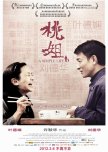
Simply wonderful
Ann Hui took a subject that could have been melodramatic and maudlin and handled it with subtlety and quiet grace. A Simple Life gave a glimpse into Hong Kong nursing homes and the challenges of caring for and taking care of the elderly. Andy Lau and Deanie Ip had a beautiful chemistry as boss/surrogate son and maid/surrogate mom.Ah Tao has been serving the Leung family for 60 years going back to the Leung grandmother matriarch. She continues to work for Roger, the Leung son residing in Hong Kong-cooking, cleaning, and even nursing him after a heart attack. Roger is a film producer who often travels for his job yet he always knows an exquisite meal and sympathetic ear will be waiting for him when he returns home. On his latest trip Ah Tao has a stroke. Unwilling to be a burden she retires and decides to enter a nursing home. Roger checks the place out and tells her he will be visiting her. Unlike the sons of other residents, he keeps his word.
Ah Tao had always taken pride in serving Roger and his family. The role of being provided for was an unfamiliar and uncomfortable one. Though she often refused money, the sight of Roger visiting caused her eyes to light up. During the first scene of the film no words passed between them as Roger ate, now when he arrived, they ate together, laughed, and enjoyed each other’s company. Never ashamed of her, he called her his aunt when she accompanied him to a movie premiere.
The view into the nursing home was difficult. Ah Tao’s room was little more than a cubicle with a curtain for a door. She was around people in varying states from vegetative, with dementia, or still quite mobile. As people came and went, she knew one day she too would leave and not come back. Death was no stranger to the home. Ah Tao was feisty and generous, not letting anyone put her down. Even as her body deteriorated, her spirit soared. Though Roger doted on her, he never fussed over her, giving her the space and dignity she required. Deannie Ip gave a wonderfully complex performance as Ah Tao dealt with her health issues, adapted to life in the nursing home, and the change in her relationship with Roger. Lau’s Roger calmly accepted his role of caregiver without complaint as his character showed how much the older woman had come to mean to him.
Director Hui could have taken the easy path and attempted to manipulate the audience’s feelings. There was no hysterical crying or deep soul wrenching conversations. Instead, she portrayed Ah Tao’s health and future matter of factly. No evil nursing home personnel or family members tried to take advantage of her or come between her and Roger. Instead, the film focused on the universal challenges of growing older-facing deteriorating health, the financial and emotional costs, and how different families reacted to those challenges. In this slice of life, Ah Tao and Roger effortlessly displayed the ease of two people who loved and respected each other. At 2 hours the slow, character driven story might have been too long in someone else’s hands, but Ann Hui allowed her actors to shine as their characters showed the importance of loyalty and devotion especially in the difficult times in this touching film.
5 August 2024
Esta resenha foi útil para você?
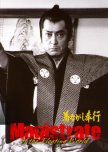
"I like cleanliness, and I have a strong sense of duty"
Magistrate of the Floating World aka The Magistrate Who Dresses Informally was an entertaining made for TV movie with an overly complicated plot. The best thing about it? Nakadai Tatsuya and his beautiful crazy eyes having a good time in a more comedic role for a change.After three magistrates break down and quit or attempt seppuku in one year, the powers that be in Edo decide that they have run out of options and must send the eccentric Mochizuki Koheita to clean a town up. Mochizuki sends a spy ahead to tell people that he is better at “having fun” than his skills as a samurai are. In reality, he actually is a remorseless womanizer, but also a master with the sword. He never checks in with the magistrate’s office, much to the consternation of the official and scribe working there. Instead, he makes himself at home in Horisoto, the den of iniquity openly run by “samurai losers” and clandestinely by high-ranking officials who make a tidy profit on the illegal activities. The spies, corruption, traitors, and temptations make Mochizuki’s job challenging, but the laid-back magistrate takes it all in stride.
The story was based on a book which might explain the large number of characters and intrigues. Ninety minutes was scarcely time to do many of the stories and characters justice. Nakadai was the focal point as he sauntered about unarmed for most of the movie, making friends as he drank, gambled, and slept his way to discovering who was the power behind the criminal enterprise. The office duo’s continued annoyance at his unexplained absence also provided some levity as they cluelessly complained while Mochizuki quietly cleaned up the deeply imbedded criminal element.
Magistrate of the Floating World was directed by Okamoto Kihachi, who directed many big screen films. With the star power of Nakadai Tatsuya it did feel at times like something grander than a TV special though something from the 1960’s. The large number of characters briefly introduced and used even when integral to the story could make it hard to keep up with who was important and who was irrelevant. Having said all that, I did enjoy it as a Nakadai fan. If you like old samurai movies or Nakadai Tatsuya in particular, this is something to give a try.
17 July 2024
Esta resenha foi útil para você?

"A tiger's daughter is no kitten indeed"
Lady Detective Shadow was a low budget Dragon Gate Inn adjacent movie. The fights, story, and sets were the equivalent of a mediocre Cdrama. What it did have going for it was a competent female lead, a former royal constable, ousted by an evil, powerful eunuch during the chaotic times of the Ming Dynasty.Sima Fei Yan and her sidekick Yezi head to Shacheng in search of the bandit Lu Jiang. Lu Jiang and numerous sects and bandits are headed there in search of the mysterious treasure that reveals itself every 49 years in the desert. Everyone converges on a rundown inn where death is a familiar guest. Official Song and his servants wind up in pieces out in the woods giving Fei Yan another case to solve. Helping her is the local official, Wu Ping, a friend of her late father.
This film had an adequate story and acting though the logic during the final quarter of the film fell apart. The fights were shot for people with no kung fu skills with lots of obvious cuts, sped up and slowed down action, and wire work. The bare minimum was put into the sets and CGI. Shang Rong did her best with the Sherlockian, unemotional role of the brilliant detective.
If you have nothing else to watch except for this film, it’s not an awful way to spend 90 minutes if you keep your expectations as low as a buried city in the desert.
15 July 2024
Esta resenha foi útil para você?
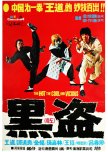
"No one can beat me"
Dorian “Flash Legs” Tan and Don Wong teamed up to take on an evil counterfeiter in Hot, Cool, and Vicious. This Taiwanese kung fu flick surpassed my expectations, albeit they were very low to begin with. Not gifted with the budget of a Shaw Brothers production, director Lee Tso Nam and martial arts director Gam Ming made the most of what they had, namely Dorian Tan’s excellent kicks.Capt. (Northern Leg) Lu takes care of the law and order in a village run by Mayor Yuen. When Yuen’s son commits a murder the two men clash. Southern Fist Pai Yu Ching, a known killer, arrives in town with his buddy Tieh and begins working for Yuen. Newly arrived Miss Lee and her uncle bear a grudge against Lu. Before long everyone seems to be trying to hire Pai to kill Lu.
There were no secret lists or manuals, but there were plenty of hidden identities and subterfuge. The plot led to the fights nicely. Gam Ming’s choreography utilized the cast’s abilities and those with lesser abilities well. Speaking of Gam Ming (aka Tommy Lee), he showed up in the final act as the dangerous golden haired albino fighter. Dorian’s kicks are always a joy to watch and the choreography showed them off splendidly. There was a modicum of wire-fu when characters did some high jumping but it was kept to a minimum. Sun Chia Lin even got in on the fighting. Most of the action was fairly fast though there were some glaring misses. The final fight was worth the price of admission.
Dorian Tan and Don Wong made for a fun dynamic duo as they took on Gam Ming and a host of minions led by Phillip Ko Fei, Li Chiang, and Lung Fong. If you enjoy old kung fu movies, especially the low budget Taiwanese flicks, this is one to try.
10 July 2024
Esta resenha foi útil para você?
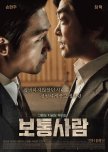
"It ends fast if you stay still"
What will an Ordinary Person do in the face of poverty and corruption? Will an Ordinary Person fight for the children’s future at the cost of his own? What would an Ordinary Person do for his child’s health and future? Set in Seoul during the turbulent 1980’s, two ordinary men would have to decide how much of themselves they could give away and whether they could do something extraordinary.Kang Sung Jin is a police detective barely making ends meet with a mute wife and a son who needs an operation on his leg. Providence seems to reach out and touch him when Choi Kyoo Nam of the Intelligence Agency gifts him an envelope containing evidence of a serial killer. The killer just happens to be in Sung Jin’s jail cell. It’s up to Sung and his partner to gather the witnesses and coerce a confession from Kim Tae Sung. It’s not long before his friend and reporter Chu Jae Jin, points out conflicting evidence putting Sung Jin in not only an ethical dilemma but both men in a life and death one.
The events in the movie lead up to the 1987 Defense of the Constitution and demonstrations. Torture and forced confessions were business as usual. Jang Hyuk’s Choi Kyoo Nam was ruthless and saw those beneath him as mere dogs which he could order to do his bidding. If they faltered, he would just make dog stew out of them. The Intelligence Agency had its tendrils everywhere.
Ordinary Man forced its characters to dig deep and make diligent and dangerous decisions. Like in an old Kaiju movie, the monster didn’t truly reveal himself until the forty-minute mark. The film could have used some trimming to narrow down the story and focus. It started out with a comedic chase, but anyone who has watched Korean movies knows better than to take that bait, it’s never long before the pain sets in.
Sung Jin found that once you did the devil’s bidding, there was no turning back. A new car, money to spend, an operation for his son all seemed like a dream come true until it became a nightmare of agonizing ethical choices. Choices had consequences, terrible irrevocable consequences. This was not an action movie, and only the framework had to do with the pervasive corruption in society. At its heart, the film asked what would an ordinary man do when faced with dire moral challenges never knowing if his choices would change anything for the better or if he’d be able to live with them.
"If I don't fall, no one can knock me down."
5 July 2024
Esta resenha foi útil para você?

 55
55 206
206 11
11






















